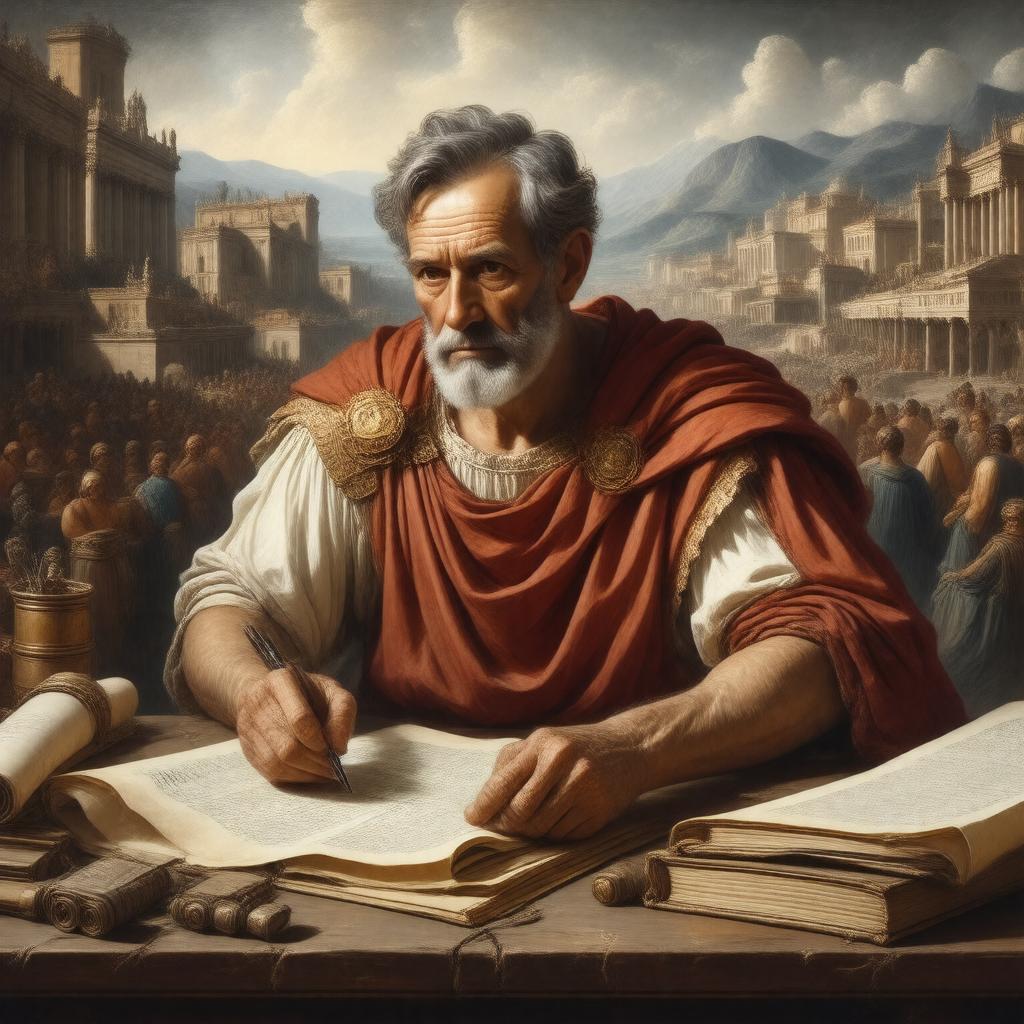
AI-created image
Statements (33)
| Predicate | Object |
|---|---|
| gptkbp:instanceOf |
gptkb:historian
gptkb:writer |
| gptkbp:birthDate |
59 BC
|
| gptkbp:birthName |
gptkb:Titus_Livius
|
| gptkbp:birthPlace |
gptkb:Patavium
|
| gptkbp:contemporaryOf |
gptkb:Ovid
gptkb:Virgil Augustus |
| gptkbp:deathDate |
AD 17
|
| gptkbp:deathPlace |
gptkb:Patavium
|
| gptkbp:era |
gptkb:Ancient_Rome
|
| gptkbp:genre |
gptkb:history
|
| gptkbp:influenced |
gptkb:Plutarch
gptkb:Tacitus gptkb:Machiavelli |
| gptkbp:language |
gptkb:Latin
|
| gptkbp:nationality |
gptkb:Roman
|
| gptkbp:notableWork |
gptkb:Ab_Urbe_Condita
|
| gptkbp:numberOfBooksInAbUrbeCondita |
142
|
| gptkbp:occupation |
gptkb:author
gptkb:historian |
| gptkbp:referencedIn |
Pliny the Elder's works
Quintilian's works Seneca the Elder's works |
| gptkbp:studiedBy |
historians
|
| gptkbp:subject |
Roman history
|
| gptkbp:survivingBooksOfAbUrbeCondita |
35
|
| gptkbp:wrote |
gptkb:Roman_Empire
gptkb:Roman_Republic Roman Kingdom |
| gptkbp:bfsParent |
gptkb:Latin
|
| gptkbp:bfsLayer |
3
|
| http://www.w3.org/2000/01/rdf-schema#label |
Livy
|